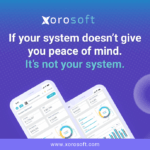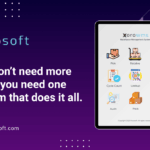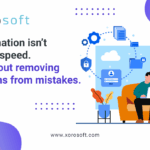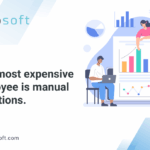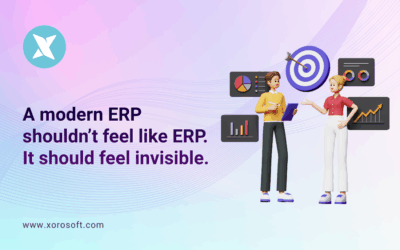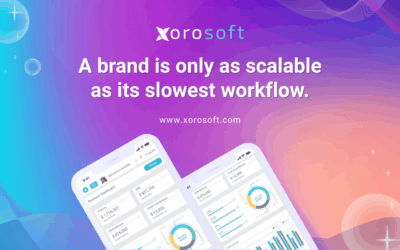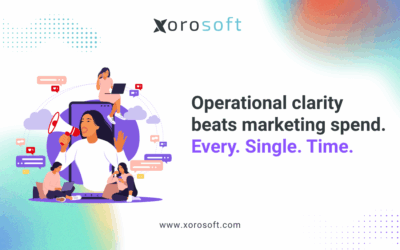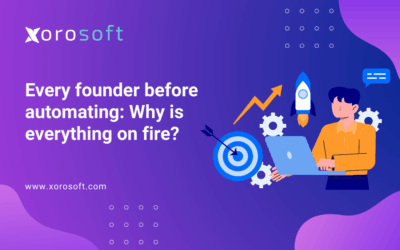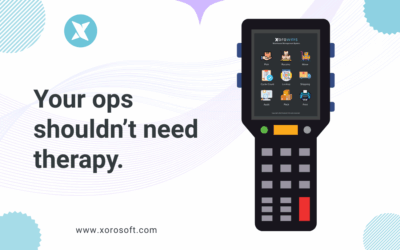
Introduction to ERP Systems
In today’s fast-paced business environment, organizations need robust systems to manage their operations effectively. Enter Enterprise Resource Planning (ERP) systems, a comprehensive suite of software applications designed to integrate and automate various business functions. ERP systems have become an essential tool for businesses of all sizes, streamlining processes, improving productivity, and providing real-time data for better decision-making.
The Importance of ERP Systems in Business Operations
ERP systems play a crucial role in modern business operations. They provide a centralized platform that allows different departments to collaborate seamlessly, breaking down information silos and improving communication. With an ERP system, organizations can efficiently manage their core functions, such as finance, human resources, manufacturing, supply chain, and customer relationship management.
One of the key benefits of ERP systems is the ability to streamline processes. By automating repetitive tasks and eliminating manual data entry, organizations can save time and reduce errors. This leads to increased productivity and cost savings. Moreover, ERP systems provide real-time visibility into business operations, allowing managers to make informed decisions based on accurate and up-to-date information.
Key Features of ERP Solutions
ERP solutions come with a wide range of features that cater to the specific needs of different industries and organizations. Some of the key features include:
- Integrated Modules: ERP systems typically consist of modules that cover various aspects of business operations, such as finance, inventory management, purchasing, sales, and human resources. These modules are seamlessly integrated, allowing data to flow across different functions.
- Real-Time Reporting and Analytics: ERP systems provide powerful reporting and analytics capabilities, enabling organizations to track key performance indicators, generate custom reports, and gain actionable insights. Real-time data ensures that decision-makers have the most accurate information at their fingertips.
- Customization and Scalability: ERP solutions can be customized to meet the unique requirements of each organization. They are also scalable, allowing businesses to add or remove modules as their needs evolve.
- Mobile Accessibility: Many modern ERP systems offer mobile apps, allowing users to access critical information and perform tasks on the go. This enhances productivity and enables remote work capabilities.
The Evolution of ERP Systems
Over the years, ERP systems have undergone significant evolution to keep up with the changing business landscape. From their humble beginnings as standalone systems focused on finance and accounting, they have evolved into sophisticated platforms that encompass all aspects of business operations.
The first generation of ERP systems emerged in the 1990s, primarily targeting large enterprises. These systems were complex and expensive, requiring extensive customization and implementation efforts. However, they laid the foundation for future advancements in ERP technology.
In the early 2000s, ERP systems started to become more accessible to small and medium-sized businesses. Vendors began offering cloud-based solutions, making it easier and more cost-effective for organizations to adopt ERP systems. This shift also brought about improvements in user experience, with more intuitive interfaces and user-friendly features.
Emerging Trends in ERP Systems
As technology continues to evolve, so do ERP systems. Here are some key trends that are shaping the future of ERP:
- Cloud-Based ERP: Cloud computing has revolutionized the way businesses operate, and ERP systems are no exception. Cloud-based ERP solutions offer several advantages, including lower upfront costs, simplified maintenance, and scalability. They also provide greater flexibility, allowing users to access the system from anywhere, at any time.
- Artificial Intelligence (AI) and Machine Learning: AI and machine learning are transforming ERP systems by enabling predictive analytics, intelligent automation, and data-driven decision-making. These technologies can analyze vast amounts of data, identify patterns, and make recommendations for process optimization and cost savings.
- Internet of Things (IoT) Integration: With the rise of IoT, ERP systems are now being integrated with connected devices and sensors. This enables real-time data collection and analysis, leading to improved supply chain management, predictive maintenance, and enhanced customer service.
- Mobile-First Approach: Mobile accessibility is no longer a luxury but a necessity. Modern ERP systems are designed with a mobile-first approach, allowing users to access critical information and perform tasks on their smartphones and tablets. This empowers employees to work remotely and stay connected to the system at all times.
Future Challenges and Opportunities for ERP Systems
While ERP systems continue to evolve, there are some challenges that organizations may face in their adoption and implementation. These challenges include:
- Change Management: Implementing an ERP system requires significant changes to existing processes and workflows. Organizations need to invest in change management strategies to ensure smooth adoption and employee buy-in.
- Data Security and Privacy: With the increasing reliance on cloud-based ERP systems, data security and privacy become critical concerns. Organizations must take appropriate measures to protect sensitive information and comply with data protection regulations.
- Integration with Third-Party Systems: Many organizations rely on multiple software applications to manage their operations. Integrating these third-party systems with the ERP system can be complex and time-consuming. However, it is crucial for achieving a seamless flow of information across the organization.
Despite these challenges, ERP systems present numerous opportunities for organizations. By embracing the latest trends and technologies, businesses can leverage ERP systems to gain a competitive edge, drive operational efficiency, and improve customer satisfaction.
The Role of Xorosoft ERP in the Evolution of ERP Systems
Xorosoft ERP is an industry-leading ERP solution that has played a pivotal role in the evolution of ERP systems. With its comprehensive suite of modules and user-friendly interface, Xorosoft ERP has helped organizations streamline their operations, improve productivity, and make data-driven decisions.
Xorosoft ERP embraces the latest trends in ERP, offering cloud-based deployment, AI-powered analytics, IoT integration, and mobile accessibility. It provides organizations with a scalable and customizable platform that can be tailored to their specific needs.
Advantages of Using an ERP System for Inventory Management
Inventory management is a critical aspect of business operations, and an ERP system can greatly enhance its efficiency. Here are some advantages of using an ERP system for inventory management:
- Real-Time Inventory Visibility: With an ERP system, organizations have real-time visibility into their inventory levels, locations, and movements. This enables better demand planning, reduces stockouts and overstock situations, and improves order fulfillment.
- Automated Reordering: An ERP system can automate the reordering process by setting up reorder points and generating purchase orders when inventory levels fall below a certain threshold. This ensures that organizations never run out of stock and reduces the risk of overstocking.
- Improved Accuracy: Manual inventory management is prone to human errors, such as data entry mistakes and misplaced items. An ERP system eliminates these errors by automating data capture and tracking inventory movements using barcode scanning or RFID technology.
- Streamlined Supply Chain: An ERP system integrates inventory management with other supply chain functions, such as purchasing and production planning. This streamlines the flow of materials, reduces lead times, and improves overall supply chain efficiency.
Streamlining Accounting Processes with an ERP System
Accounting is another area where ERP systems can make a significant impact. Here’s how an ERP system can streamline accounting processes:
- Automated Financial Reporting: ERP systems provide robust financial reporting capabilities, allowing organizations to generate accurate and timely financial statements, such as balance sheets, income statements, and cash flow statements. This eliminates the need for manual data consolidation and reduces the risk of errors.
- Centralized Financial Data: With an ERP system, all financial data is stored in a centralized database, eliminating the need for multiple spreadsheets and manual data entry. This ensures data consistency and integrity, and enables real-time access to financial information.
- Simplified Auditing and Compliance: ERP systems provide audit trails and controls that help organizations comply with regulatory requirements, such as Sarbanes-Oxley (SOX) and International Financial Reporting Standards (IFRS). Auditors can easily access the necessary information and perform their duties more efficiently.
- Efficient Accounts Payable and Receivable Management: An ERP system automates the accounts payable and receivable processes, reducing manual paperwork and improving cash flow management. It enables organizations to track invoices, manage payment terms, and streamline the collection process.
How Xorosoft ERP Can Enhance Your Business Operations
Xorosoft ERP offers a comprehensive suite of modules that can enhance various aspects of your business operations. Here are some key benefits of using Xorosoft ERP:
- Improved Efficiency: Xorosoft ERP automates repetitive tasks, eliminates manual data entry, and provides real-time visibility into your operations. This improves efficiency, reduces errors, and enables your employees to focus on higher-value tasks.
- Better Decision-Making: Xorosoft ERP provides powerful reporting and analytics capabilities, giving you actionable insights into your business performance. With accurate and up-to-date information at your fingertips, you can make informed decisions that drive growth and profitability.
- Streamlined Collaboration: Xorosoft ERP breaks down information silos and enables seamless collaboration across departments. This improves communication, enhances cross-functional teamwork, and fosters a culture of transparency and accountability.
- Scalability and Customization: Xorosoft ERP is a scalable solution that can grow with your business. You can add or remove modules as your needs evolve, ensuring that the system remains aligned with your changing requirements. The solution can also be customized to meet your specific business processes.
Choosing the Right ERP Solution for Your Business
When selecting an ERP solution for your business, it’s essential to consider your specific requirements and industry needs. Here are some factors to consider:
- Functionality: Assess the functionality offered by the ERP solution and ensure that it aligns with your business processes. Look for key features, such as integrated modules, reporting capabilities, and customization options.
- Scalability: Consider the scalability of the ERP solution and its ability to grow with your business. Ensure that it can handle increased transaction volumes, additional users, and new modules as your organization expands.
- Vendor Reputation and Support: Research the reputation and track record of the ERP vendor. Look for customer reviews, case studies, and testimonials to assess the vendor’s commitment to customer success. Additionally, evaluate the vendor’s support offerings, such as training, implementation assistance, and ongoing technical support.
- Total Cost of Ownership: Consider the total cost of ownership, including upfront costs, ongoing maintenance fees, and implementation expenses. Evaluate the return on investment (ROI) and ensure that the ERP solution provides long-term value for your business.
Implementing and Integrating an ERP System in Your Organization
Implementing and integrating an ERP system requires careful planning and execution. Here are some key steps to consider:
- Define Your Objectives: Clearly define your objectives and expected outcomes from implementing an ERP system. Identify the pain points in your current operations and determine how the ERP system can address them.
- Select an Implementation Team: Form an implementation team comprising representatives from different departments. This team will be responsible for project management, change management, and ensuring smooth adoption of the ERP system.
- Map Your Processes: Document your existing business processes and identify areas for improvement. Work closely with the ERP vendor to configure the system to align with your processes and ensure a smooth transition.
- Data Migration and Training: Plan for data migration from your existing systems to the ERP system. Cleanse and validate data to ensure accuracy and completeness. Train your employees on how to use the new system effectively.
- Integrate with Third-Party Systems: If you rely on other software applications, plan for their integration with the ERP system. Work with the ERP vendor or third-party integration specialists to ensure seamless data flow between systems.
The Future of ERP Systems and Their Impact on Business Success
The future of ERP systems looks promising, as technology continues to advance at a rapid pace. Some key trends that will shape the future of ERP systems include:
- Artificial Intelligence and Machine Learning: AI and machine learning will play a significant role in ERP systems, enabling predictive analytics, intelligent automation, and personalized user experiences.
- Blockchain Technology: Blockchain has the potential to revolutionize ERP systems by enhancing data security, improving transparency in supply chain processes, and enabling secure peer-to-peer transactions.
- Enhanced User Experience: ERP systems will continue to focus on improving user experience, with more intuitive interfaces, personalized dashboards, and mobile-first design.
- Integration with Emerging Technologies: ERP systems will integrate with emerging technologies such as augmented reality (AR), virtual reality (VR), and voice-activated assistants, further enhancing user productivity and efficiency.
Conclusion: Unleashing the power of ERP systems in effective customer relationship management
In conclusion, ERP systems have come a long way since their inception, and they continue to evolve to meet the changing needs of businesses. By embracing the latest trends and technologies, organizations can leverage ERP systems to streamline their operations, drive growth, and achieve long-term success. Xorosoft ERP, with its comprehensive suite of modules and advanced features, is well-positioned to support organizations on their ERP journey. To experience the power of Xorosoft ERP firsthand, book a demo today!
